- Home
- James A. Michener
Report of the County Chairman Page 2
Report of the County Chairman Read online
Page 2
Consequently, when I reached California one of the first things I told my wife was, “We’re going back to Pennsylvania, and I want to work in the Presidential election.”
“Good!” she cried. “This time well make sure that Adlai wins.”
I remember that I was silent for a few moments. Then I said, “I’m not sure I’m going to work for Adlai in the primaries.”
“My God!” she shouted. “Who else is there?”
My wife was a charter member of the Adlai Stevenson Club. In Chicago long before we were married she worked for him when he ran for governor of Illinois. In the 1952 Presidential campaign she not only worked vigorously but contributed her own funds and all that she could cadge from others. When he lost, her friends tell me, she went home and wept. In 1956 we were working in Europe, and I remember that bleak November morning when we staggered in to Paris after a dismal trip from Bordeaux to find that Stevenson had lost again. This time I know she went up to our hotel room and cried. If ever a husband had reason to support Adlai Stevenson for President, I did.
We drove across country to our home in Pennsylvania, and as we rode through one brilliant state after another—California, Arizona, New Mexico, Colorado—we often spoke of how magnificent our nation was. We had each, I think, known the grandeur and the misery of life in America. As I have indicated, in my case the misery came first, in the early years as a small boy who almost never got the playthings a boy would want, with the grandeur coming later, when as an adult I found thrown at me almost everything a man would desire. In my wife’s case it was rather the reverse. As the much-loved youngest daughter of a successful Japanese melon grower in eastern Colorado, she grew up in a family where her brothers spoiled her and where the world was good. Then, in a series of dramatic shifts, her older brother died of a ruptured appendix; her father died because a doctor failed to diagnose blood poisoning; her family was swept into one of the worst wartime concentration camps; all their property was confiscated without remuneration; and the burden of holding the family together fell upon my wife. That she survived this series of disasters without impairment of her natural optimism was due to the solid education Japanese parents give their children and to the fact that Antioch College, in southern Ohio, was brave enough to award her a scholarship while she was still in her concentration camp. The college also found her a good job, and she has always felt “that one Antioch in a country offsets four patriotic societies in Southern California.” It was inevitable, I suppose, that she came through these experiences without rancor and with a great love for a nation which might make mistakes, but which was generous enough to correct them. It was also inevitable that she would be for Adlai Stevenson.
So as we drove homeward she pressured me. “Who else do the Democrats have that you could possibly vote for in the primaries?” she demanded. “You’ve lived overseas. You’ve seen what America really needs. A President with courage to do the right thing. Somebody with brains. Somebody the other nations can respect. A man with determination in the field of social legislation. There’s only one man you could possibly support.”
Across the country my wife bombarded me with reasons why Adlai Stevenson had to be our next President and why I would be ashamed of myself if I supported anyone else. She made a persuasive case for her candidate and convinced me that she was going to further his candidacy with all her energy, which is phenomenal. By the time I reached Pennsylvania, after refreshing my powerful memories of Nebraska, Iowa, Illinois, Indiana and Ohio, each of which held recollections of happy hours spent there during the last forty years, I was not, perhaps, completely convinced that I was going to come out for Stevenson, but I at least had more than a dozen good reasons to fortify me if I did so decide. The most persuasive argument my wife had used was this: “The people of this country sense that enormous decisions are going to be made in the 1960’s. And they know that more than half those decisions will involve foreign relations. They want somebody with brains. Instinctively they know the President ought to be Stevenson. And without General Eisenhower to run against him, Stevenson will win.”
“If you had to give me just one reason why I should support Adlai, what would it be?” I asked.
“Because the people sense that he’s big enough to do the job.”
“Do you think he can get elected?” I pressed.
“This time, yes,” she insisted.
When we reached home I spent the better part of one November week locked up in the small room where I usually did my serious work. My dictionaries were in place; my typewriter stood on its stand; and certain objects which have a warm good-luck quality about them stared down at me from their appointed homes. But I did not pitch in to my writing. Instead I sat back and gazed out the window at the lovely Pennsylvania forest which stood stark in the autumn winds. And as I sat there I reviewed the political condition of my nation.
“The fundamental thing,” I reasoned, “is that we have got to have a wholly new administration. It mustn’t be saddled with old policies and old policy-makers. Therefore it’s got to be Democratic. This country really needs a Democratic administration.”
I thought that it had to be Democratic for these reasons. First, our country had indeed grown somewhat fat and flabby, not as seriously as our enemies abroad preached, but just enough to give me pause. Second, “It does seem evident to me that we’ve been standing still insofar as our internal affairs are concerned. Education, new dams, new factories, our general spirit of adventure … in nearly everything but roads we need enormous new energy.” As a former teacher of economics I was innately suspicious of a high interest rate that limited new starts in industry. And I was disturbed at the deterioration of our cities, at the vetoing of bills that would aid housing, health and depressed areas. For all these substantial internal reasons I wanted a Democratic administration. Third, it seemed certain that the Senate and the House of Representatives would be markedly Democratic, for the American people showed no inclination to elect conservative Republicans to those important bodies, and I suspected that our state governors and their legislatures would be increasingly Democratic, for that was apparently the mood of the people. “Therefore,” I reasoned, “at this critical period we ought to have a Democratic President, too. I don’t like divided responsibilities now, even though it didn’t worry me too much during the last six years.” Fourth, I was deeply distressed that President Eisenhower had not used the majesty of his office in support of the Supreme Court decision on integrating our schools, and I felt that any of the talked-about Democratic nominees would, if elected President, do so. Fifth, I was even more distressed by the fact that the last eight years of Republican rule had been a period of strong anti-intellectualism, both implied and overt. So far as I knew, President Eisenhower had done nothing to encourage the arts: he not once had attended the theater, or gone to a concert, or commented favorably on books, or entertained anyone but top business and sports leaders who were equally indifferent to the arts. One of the damning charges against the administration was James Reston’s analysis of the Presidential visiting list; few men with an artistic or philosophical I.Q. of over 60 had ever appeared on it, and this attitude had insidiously permeated our national life. I myself do not place the arts inordinately high on the scale of national preferences; I have always supposed that people like painters and novelists and college professors came rather far down the list—say, right after efficient druggists or office managers—but they ought to appear somewhere, and much of America’s loss of prestige abroad stems from the world’s suspicion that Russia cares for the arts and we do not. I therefore concluded that as an artist and an intellectual I was obligated to vote for a change. Finally, and this was of major importance, I was convinced that any one of the principal Democratic contenders was on the whole a better man than Richard Nixon, and that assurance, whether accurate or not, gave me comfort. At the same time, from having talked with numerous Republicans, I knew that within their ranks there was deep dissatisfaction with Nixon
and that in 1960 many who had previously voted for Eisenhower did not want to vote for Nixon. Therefore, if we nominated the right man, we had a chance of winning.
But when I had reached the above reassuring conclusions I saw clearly that everything hinged upon the Democrats’ selection of their candidate, and so in my somewhat chilly, isolated room I tried to decide who the logical choice was. Alone, and without help from anyone or any printed material, I tried to predict in my own mind what ought to happen and what was likely to happen.
I considered these men in order: Adlai Stevenson, Mennen Williams, Stuart Symington, Hubert Humphrey, Lyndon Johnson and John Kennedy. At no time did I consider Edmund Muskie, Pat Brown or Robert Meyner, for they were all Catholics; and although I was willing to support them, it seemed to me that as such they did not yet have an adequate stature to risk the adversities that overtook Al Smith, at least so far as popular legend reports.
My wife kept reminding me forcefully of the claims of Adlai Stevenson. He had run two honorable campaigns and everything I knew about him suggested that he had grown in the interval since 1956. Having twice sacrificed himself at the altar of the unconquerable legend of General Eisenhower, he merited a third chance against a less popular opponent. My instinctive sense of poetic justice also told me that it was proper that Stevenson should defeat Nixon, since the latter had abused him so badly in the previous campaigns. I recalled particularly how Nixon had ridiculed Stevenson’s 1956 suggestion that nuclear tests be halted, even charging him in terms that questioned Stevenson’s sanity if not his loyalty. Brains, character, insight, aptitude for the job and the capacity to perform brilliantly Stevenson had. I was not even worried about the William Jennings Bryan third-try jinx. Furthermore, I felt certain that if he won the nomination he would do so without splitting his party wide apart, which had to be a major consideration. Most of all, it seemed to me that my wife was right in one important particular: our peculiar age seemed to call specifically for Stevenson. We needed a President with brains, a man who could provide the nation and the world with the kind of leadership it merited. In fact, there was only one weakness in the candidacy of Adlai Stevenson, but that seemed to me to be absolutely fatal. He could win the respect of the world, the love of his followers, and the nomination. But I was sure he could not win the popular votes that would elect him President. I foresaw that if he was nominated the newspaper editorialists and cartoonists would massacre him. Radio commentators and television pundits would treat him with contempt. And what the big journals of opinion would do to destroy him I could only guess. His campaign would be a debacle, and he would be driven from one extremity to another. His defeat would be predictable by mid-October, and the wolves would never leave his jugular. Furthermore, Richard Nixon, having twice been on a team that had thrashed him soundly, would profit from the aura of victory that would be about his temples from the first day of the campaign until a Republican victory became a reality on November 8.
After reaching this gloomy conclusion, I went back to see if there was any substantial reason why I was wrong in my calculation. Could Adlai Stevenson be elected in 1960? On one side of a sheet of paper on which I should have been writing a novel I listed all the people who my wife argued would vote for him: the intellectuals; businessmen who knew the interest rate was too high; confirmed Democrats; people who sensed that America had been marking time; labor; young people; and all others who might conceivably qualify. In the opposite column I listed those who would probably not vote for him: Catholics, who had shown a marked disinclination to do so in 1952 and 1956; Negroes, who had drifted toward General Eisenhower; women who objected to his divorce; people who were insecure and who instinctively followed what the newspapers and radios told them; all Republicans; and no less than eighty percent of those numerous Democrats who had already voted against him in 1952 and 1956. Furthermore, I concluded that most professional big-city Democratic leaders would be cool to his candidacy, and whereas they might be forced to acquiesce in his nomination, I doubted that they would vigorously support his actual candidacy. In late November of 1959 I decided that Adlai Stevenson could not be elected President, but when I told my wife of my conclusions she refused to believe them and continued to work for her candidate right up to the last minute.
Mennen Williams, the brilliant and likable governor of Michigan, was vulnerable, I thought, because of the administrative troubles he was having in his home state and because he was not well enough known across the country. It seemed to me that any of the other candidates would make a much better showing than he. Furthermore, I had the feeling that Richard Nixon would more or less cut Williams to shreds in public debate, for I knew Nixon’s formidable reputation as a debater and I was sure he would use his skill to good purpose in the rough and tumble of an intense campaign.
Stuart Symington perplexed me. Like many other Americans I knew him principally as a participant in the Army-McCarthy hearings, where his performance was hardly sparkling and where he seemed to be a most timorous lion if, indeed, he had any teeth at all. Certainly, what I had seen on television gave me no reassurance about his candidacy. On the other hand, I had done a good deal of work with military people, and they spoke most highly of him, even when they disagreed with his position and he with theirs. I also knew that his published remarks on our military posture made a good deal of sense, and that his general conduct as a senator was far above average. Listening to the comments of others, I found that he made a good impression on people who did not otherwise know much about his career. Women liked him. And I was forced to give him real attention when I heard an old couple affirm, “That man Symington looks like a President should.” The last President we had who “looked the way one should” was Warren Gamaliel Harding, and I often reflected painfully, “If the scandals had not overtaken him when they did, he could have been reëlected with ease in 1924 and maybe even in 1928.” I always closed such mournful thoughts with this happy conclusion: “Well, then we’d have escaped Coolidge.” But in the American democracy it is not inconsequential for a man to look like what he is running for, and if this was true before the days of television, think how much more true it is now. Therefore, at no time did I rule out Stuart Symington as a possibility, even though I would never have chosen him of and by myself. And when my favorite old warhorse Harry Truman came out for him, I gave the Missouri senator very careful reconsideration. I concluded early that he would not be a good candidate for the Presidency itself but that he might make a creditable candidate for the Vice Presidency.
Hubert Humphrey was my wife’s second choice for the top position, and during all my reflections I had a fairly constant espousal of his cause at meals. I liked his brilliance. I approved of his voting record. He talked sense and had a certain vitality which I found impressive. My fear was that he would not be able to convince a majority of the general public that he was either qualified or prepared for the job. Early in my considerations I ruled him out for the Presidential nomination and failed to see where he would fit into the Vice Presidential part of the ticket except in the possibility of the Presidential spot’s going to Lyndon Johnson. There would be much to be said for a Johnson-Humphrey ticket, and I never counted it out.
As for Lyndon Johnson, the best Democrats I knew in Hawaii were for him, and with me that carried a good deal of weight. Those who knew him said that he owned a powerful brain and knew how to use it. In the early part of 1959 I had met upwards of twenty leading figures from Congress, about one third from the Senate, and judging from what they had told me, if Presidents were elected by Congress, Lyndon Johnson would pretty surely be the next incumbent. In view of what subsequently happened, it would probably be prudent of me not to list the congressmen by name, but their testimony impressed me, and I was four times invited to join one committee or another that was attempting to further his candidacy. I refrained for several reasons. First, I felt that Johnson alone would not be able to enlist labor’s whole-hearted support and without such support I did not see ho
w any Democrat could win. Second, I felt that any platform on which Johnson could successfully run would be so watered down in social content that I for one would not care to support it. Third, and this loomed most important to me in late 1959, I suspected that he could not get the nomination without engaging in an intra-mural fight that would paralyze the party for the ensuing Presidential campaign, and this would insure the loss of big cities like Philadelphia and New York, which would inevitably mean the loss of their states and thus the loss of the election. Fourth, I remembered that Johnson had originally won his Senate seat by a mere 87 votes out of a total of nearly one million and I saw little evidence that he would be a good vote-getter across the nation. Opposed to these doubts were rumors that the professional Democratic politicians like Jake Arvey of Illinois and David Lawrence of Pennsylvania were impressed with Johnson and had agreed to back him as a compromise candidate. I suspected therefore that he might be the Presidential nominee, with John Kennedy as his Vice President, and this ticket I would be willing to support with all my energy.
I have left discussion of John Kennedy till last because that’s what I did in November of 1959. On the boat trip home I had decided that I could support a Catholic for the Presidency, but that did not mean that I was willing to throw away my party’s chances if nominating a Catholic meant that he would recapitulate the misery of the Al Smith campaign of 1928. In fact, the first political speech I ever made was to the assembly of Swarthmore College in the fall of 1928 when, as a junior, I blasted hell out of the complacency of a Quaker college which could profit from the religious freedom under which Quakerism flourished—for few remember that one of the sects which suffered most in colonial days at the hands of bigots was the Quakers, who were beaten and banished and persecuted by devout Protestants—and at the same time vote overwhelmingly against Al Smith because he was a Catholic. As I recall, it was a pretty impassioned speech, dampened somewhat by a senior political-science major who whispered when I sat down, “Stupid, we’re not voting against Al Smith because he’s a Catholic. We’re voting for Herbert Hoover because he’s a Quaker.” I’m afraid I didn’t quite catch his logic, and I remain to this day a little confused. But I did not want John Kennedy to repeat in 1960 the fiasco of 1928. In fact, I didn’t yet know who my candidate was to be.

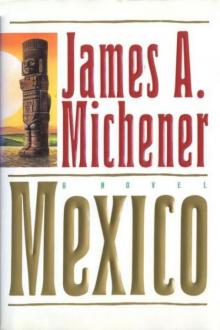 Mexico
Mexico The World Is My Home: A Memoir
The World Is My Home: A Memoir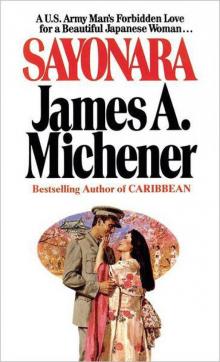 Sayonara
Sayonara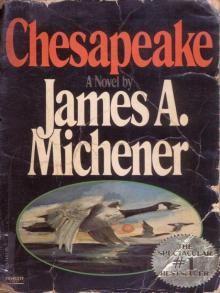 Chesapeake
Chesapeake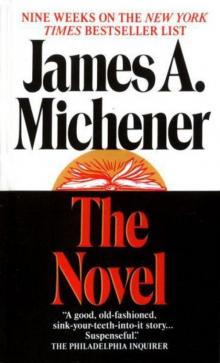 The Novel
The Novel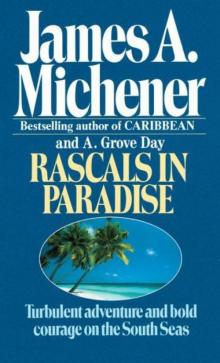 Rascals in Paradise
Rascals in Paradise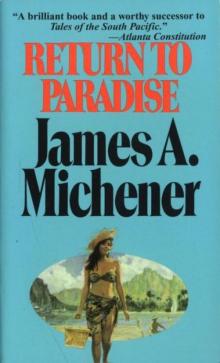 Return to Paradise
Return to Paradise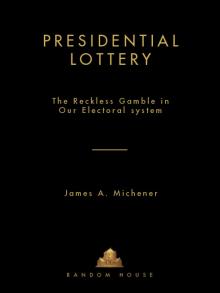 Presidential Lottery: The Reckless Gamble in Our Electoral System
Presidential Lottery: The Reckless Gamble in Our Electoral System The Source
The Source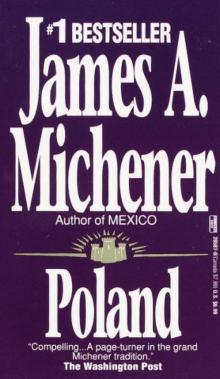 Poland
Poland Space
Space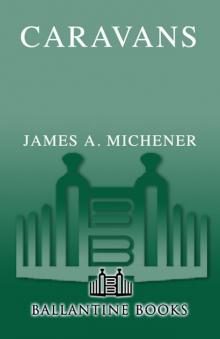 Caravans
Caravans Creatures of the Kingdom: Stories of Animals and Nature
Creatures of the Kingdom: Stories of Animals and Nature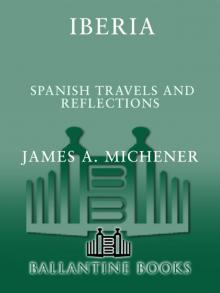 Iberia
Iberia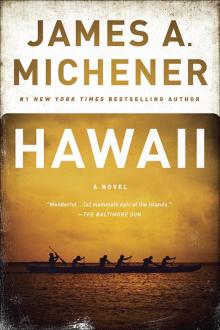 Hawaii
Hawaii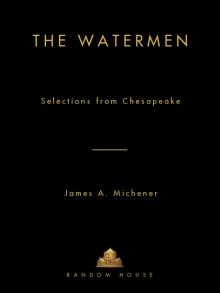 The Watermen: Selections From Chesapeake
The Watermen: Selections From Chesapeake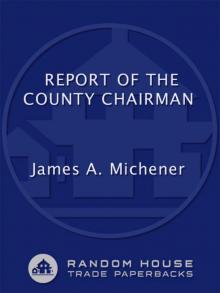 Report of the County Chairman
Report of the County Chairman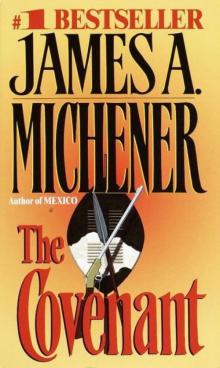 The Covenant
The Covenant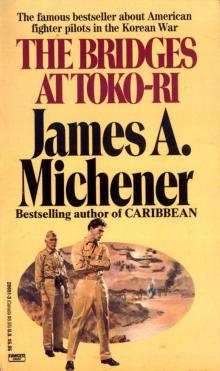 The Bridges at Toko-ri
The Bridges at Toko-ri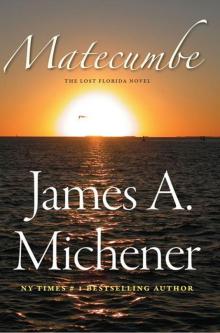 Matecumbe
Matecumbe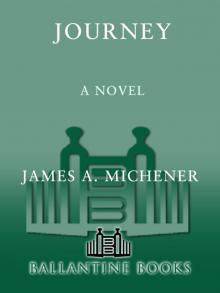 Journey: A Novel
Journey: A Novel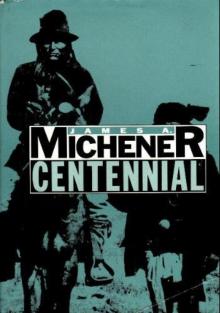 Centennial
Centennial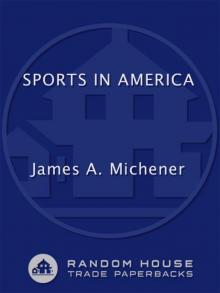 Sports in America
Sports in America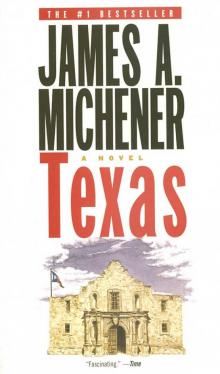 Texas
Texas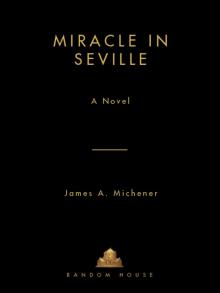 Miracle in Seville
Miracle in Seville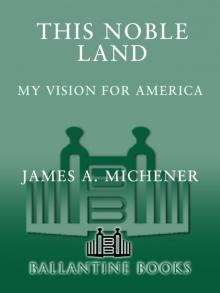 This Noble Land: My Vision for America
This Noble Land: My Vision for America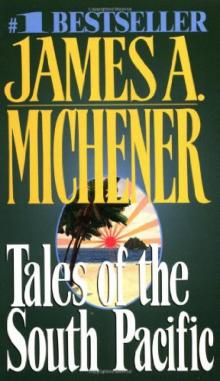 Tales of the South Pacific
Tales of the South Pacific Bridges at Toko-Ri
Bridges at Toko-Ri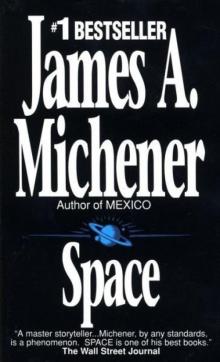 Space: A Novel
Space: A Novel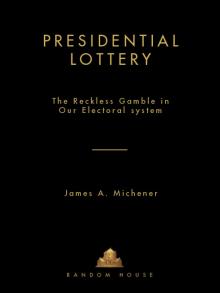 Presidential Lottery
Presidential Lottery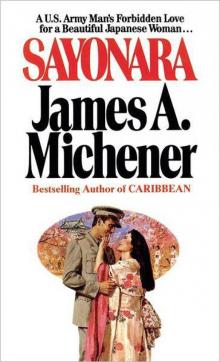 Sayonara: A Novel
Sayonara: A Novel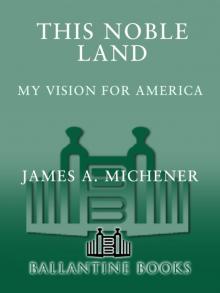 This Noble Land
This Noble Land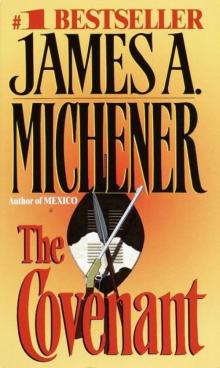 The Covenant: A Novel
The Covenant: A Novel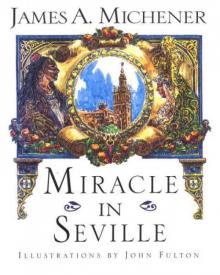 Miracle in Seville: A Novel
Miracle in Seville: A Novel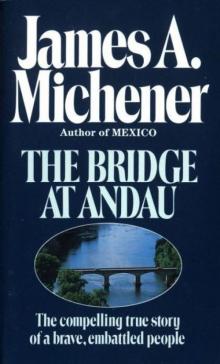 The Bridge at Andau
The Bridge at Andau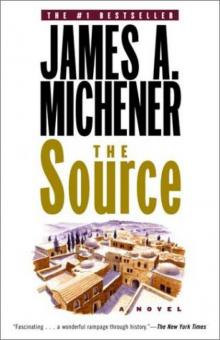 Source
Source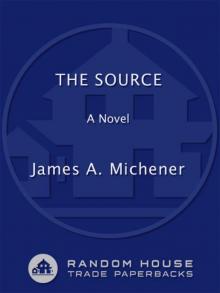 The Source: A Novel
The Source: A Novel Journey
Journey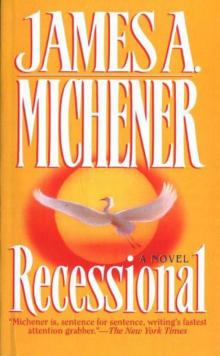 Recessional: A Novel
Recessional: A Novel Legacy: A Novel
Legacy: A Novel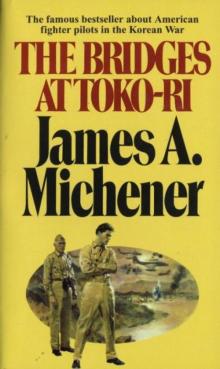 The Bridges at Toko-Ri: A Novel
The Bridges at Toko-Ri: A Novel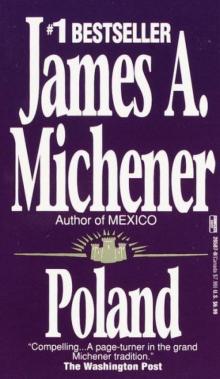 Poland: A Novel
Poland: A Novel